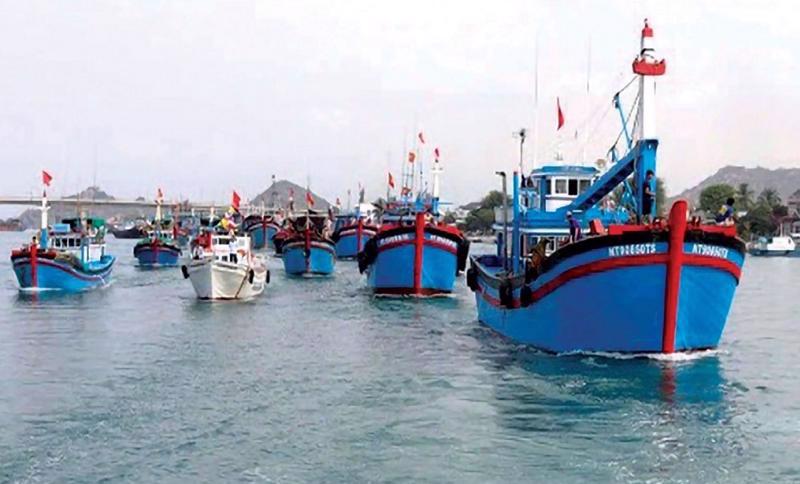In an official dispatch dated November 4, Prime Minister Pham Minh Chinh called for the utmost effort to have the “yellow card” on Vietnam’s fishing industry from the European Commission (EC) removed in its fifth round of inspections next year, the Government News has reported.
The EC imposed a “yellow card” warning on illegal, unreported and unregulated (IUU) fishing in Vietnam in 2017.
This has led to a significant decline in seafood exports from Vietnam to the EU.
Compared to the 2017 figures, seafood exports to the EU declined 12 per cent in 2019, equivalent to $183.5 million. The downward trend continued in 2020, falling 5.7 per cent from the previous year.
The EU, however, remains one of Vietnam’s top five fisheries markets.
Other importers, including the US, have also implemented stricter control measures on seafood products from countries that have received “yellow cards” from the EC.
The “yellow card” is still in place despite the EC carrying out four rounds of inspections in the country, including the latest, between October 10 and 18.
In his dispatch, the Prime Minister emphasized the need to enhance determination and effort to have the “yellow card” removed in the fifth round of inspections next year, for the benefit of the country and its people and to develop a sustainable, responsible, and internationally-integrated fishery industry.
He said this work would demonstrate Vietnam’s international responsibility towards international commitments and agreements in sustainably protecting the marine environment and marine ecosystems, and promoting sustainable marine economic development in association with ensuring security and sovereignty over its seas and islands.
In his dispatch, all fishing boats with a length of 15 meters or more must unload seafood products at fishing ports (including private fishing ports and wharves), where they will be monitored and traceable to ensure product origin.
The Prime Minister required that all relevant agencies and fishing vessel owners strictly adhere to regulations on the confirmation and certification of domestically-harvested seafood products.
He also demanded a review of enterprises exporting seafood to the European market, and the use of an e-traceability system in order to monitor transparency and legality in accordance with regulations on origin confirmation and certification for aquatic products exploited domestically.
Transparency in seafood origin traceability is essential not only to meet the requirements of export markets but also for domestic consumers, the Prime Minister said, adding that it helps enterprises effectively manage issues related to food safety, disease control, and environmental safety throughout their production chains, thus fostering absolute trust with customers and ensuring the reputation of seafood businesses and producers.
After receiving the “yellow card” in 2017, Vietnam proactively responded to the EC’s recommendations. The country promptly enacted the Law on Fisheries and established fishing vessel data covering registration and the issuance of fishing licenses from central to local levels.
Relevant ministries, agencies, and coastal cities and provinces in Vietnam have implemented IUU fishing prevention tasks and solutions in line with directives from the Permanent Member of the Party Central Committee’s Secretariat, the Prime Minister, and the National Steering Committee on IUU Fishing Prevention and Control.
However, Vietnam’s efforts have yet to meet the expectations of the EC, and more effort is required on the country’s part.









 Google translate
Google translate